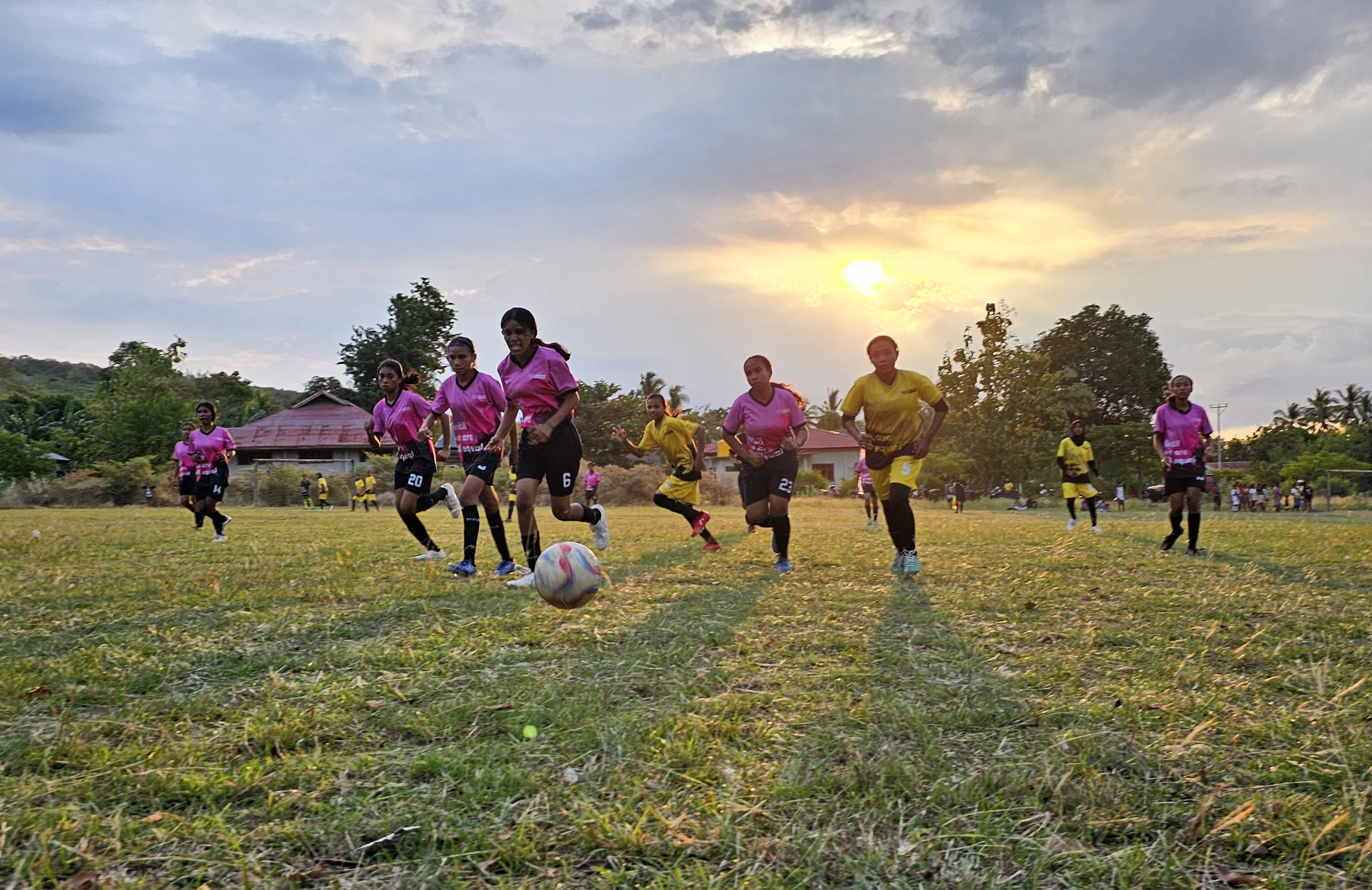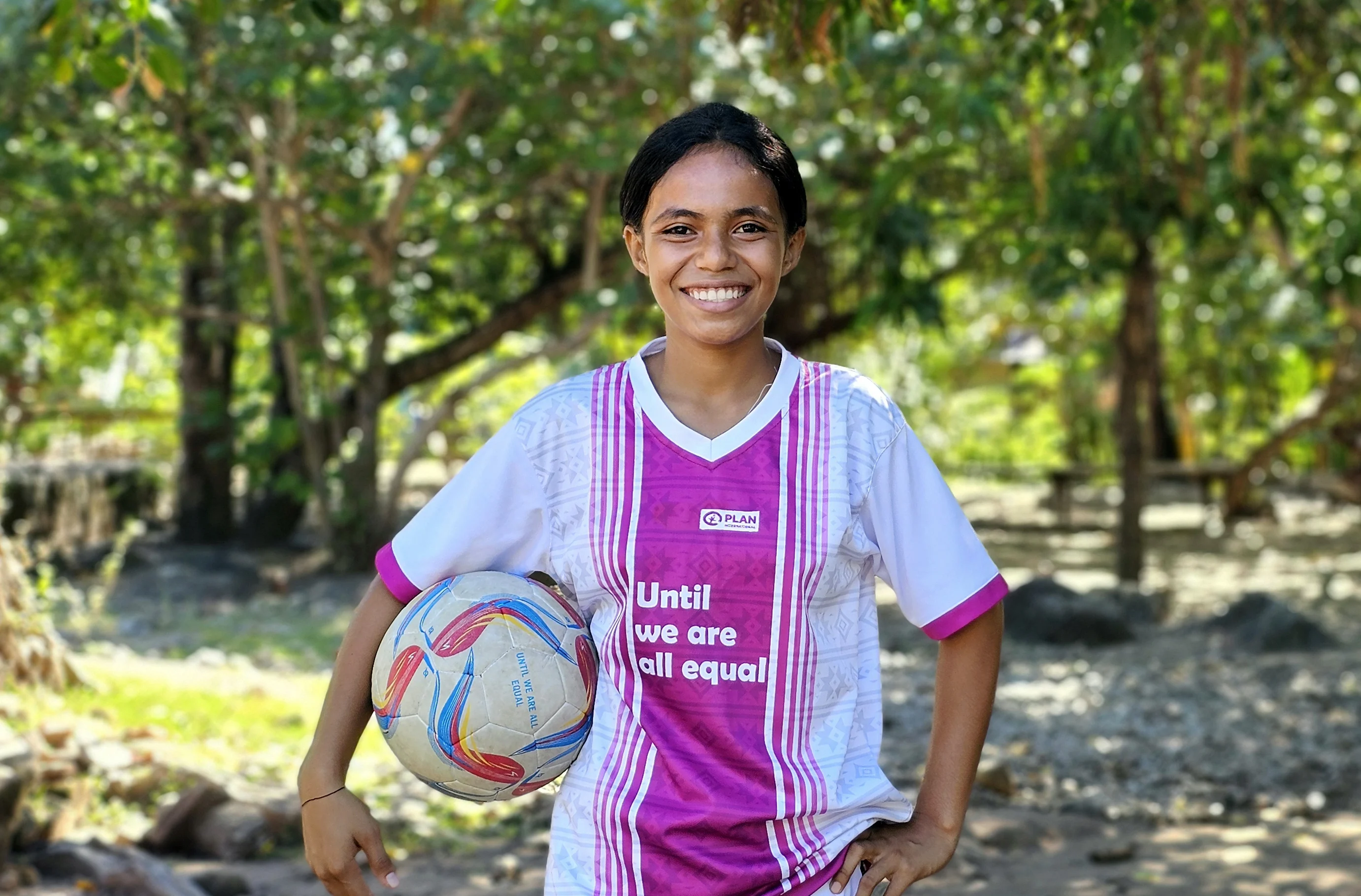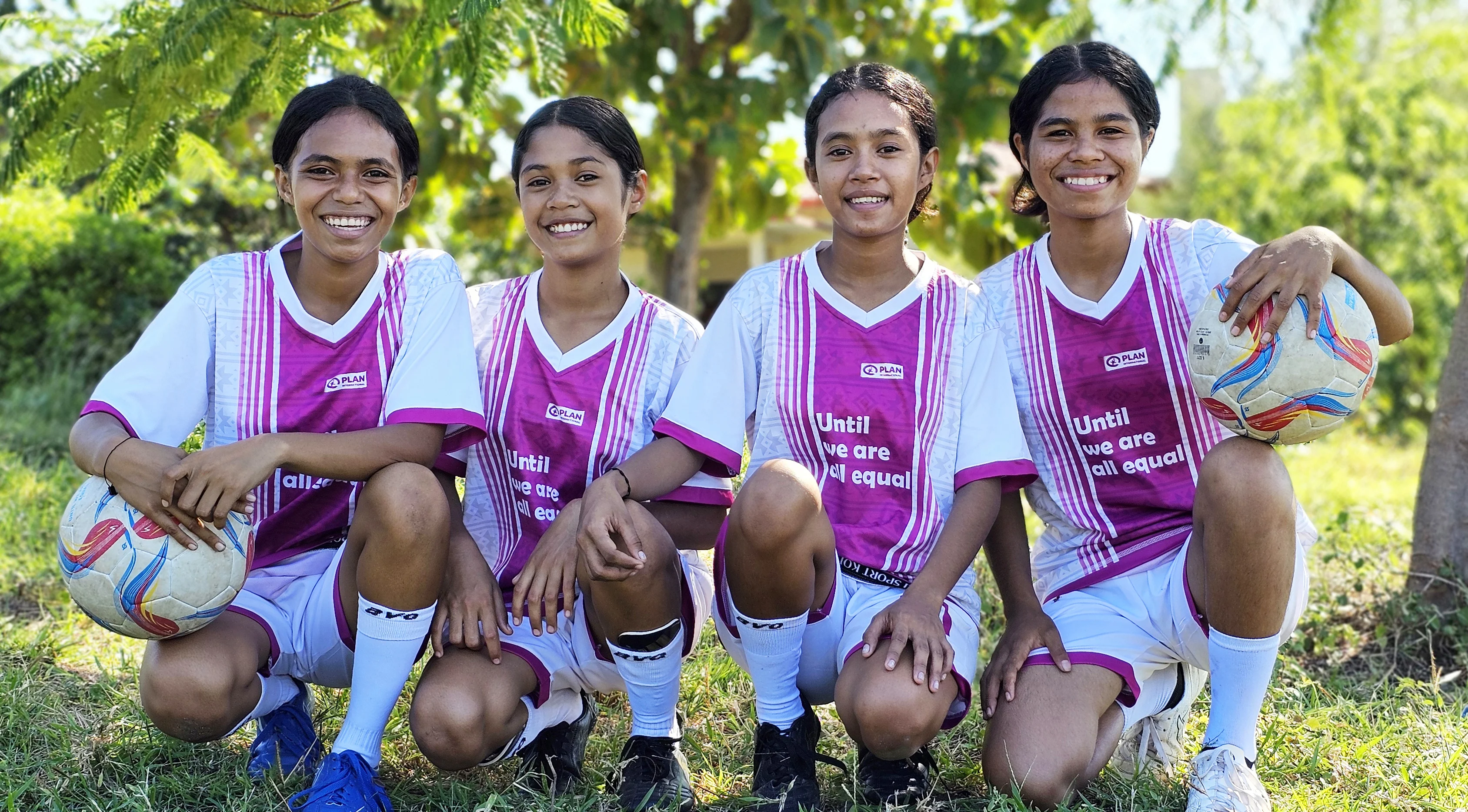How football is breaking down gender barriers in Indonesia

As a young girl, Maria says she never thought about playing football at school or in her neighbourhood because she thought it was only for boys and men.
"Boys can play football whenever they want, but we girls cannot do the same," she says. "We don't have any facilities or fields to play football on, it's just for the boys and men."
Lembata in Indonesia is a patriarchal society with clear divisions between men and women. Women and girls are constrained by long-standing traditional gender norms that prevent them from exercising their rights and taking advantage of opportunities in education, work and leadership.
As they grow up, girls face negative gender stereotypes about their worth, which undermine their self-esteem and confidence. "I didn't have the confidence to speak in public," says 14-year-old Maria. "The other students used to bully me because I couldn't speak well in front of them."
When girls try to stand up for themselves, they are often abused and discriminated against. "We are bullied and harassed when we try to speak," explains Maria. "We are unable to make our voices heard by those around us. We usually keep this harassment to ourselves.”

Through the BLOOM project, Plan International is working in Lembata to empower adolescent girls by equipping them with the skills to challenge the status quo and promote gender equality in their schools and communities.
To build girls' confidence and challenge gender norms, Plan organised a girls' football tournament in June 2024. Girls from five secondary schools in Lembata took part in the first ever girls' football tournament in the regency. Maria was one of the participants.
"Playing football makes me happy, but nothing makes me happier than seeing the crowd cheering for us girls when we play. When I play football, I give my best so that the community can see what we girls are capable of when we are given a chance and the support we need to grow and thrive," says Maria, who is part of Plan International's sponsorship programme.
All five teams played well and after a close competition, the winning team was crowned champions. The event was well attended and the matches were watched by a large number of people from all parts of the community, which helped to inspire and encourage the players to do their best.

Girls' football is a great way to improve social empowerment, engage girls in the community and help develop their self-confidence and assertiveness. When girls have the confidence, skills and resources, they can take control of their lives and make their own choices.
Erlina Dangu, Programme Implementation Manager in Lembata, explains that the project aims to develop the skills and knowledge of adolescent girls aged 11-19 to set goals, develop life plans and leadership skills, and lay the foundations for a better future.
"They are taught about sexual and reproductive health and rights, mental health, how to lead a healthy life, gender-based violence and child marriage," says Erlina. "Increasing girls' participation in football plays an important role in changing their mindsets and society's negative attitudes towards girls."
Participants in the project are now gender champions, working to tackle inequality in their communities, prevent child marriage and increase young people's knowledge about sexual and reproductive health, menstrual health management and the negative consequences of early marriage through a series of discussions led by the young people themselves.
"We talk about a lot of things, like equality for girls," says Maria. "I have been encouraged to keep doing what I love. For example, I play football now. It's not only boys who can play football. Boys can also cook and clean the house, not just girls, and that is something I have learnt from Plan International.”

About the project
Through Plan International's Better Life Options and Opportunities Model (BLOOM), girls learn about their rights, reproductive health and how to protect themselves from early and forced marriage. Young women work with community mentors who challenge them to think critically about education, goal setting and career planning, as well as how to complete job applications and interview skills.
The project aims to address long-standing issues and support young people in the three districts of Nagekeo, Sikka and Lembata in East Nusa Tenggara (NTT) province. With a broad scope, the BLOOM project works with girls and boys aged 13-19 to create personal development opportunities for the next generation. We also forge strong partnerships with schools, parents, civil society organisations and government agencies at the district level.

